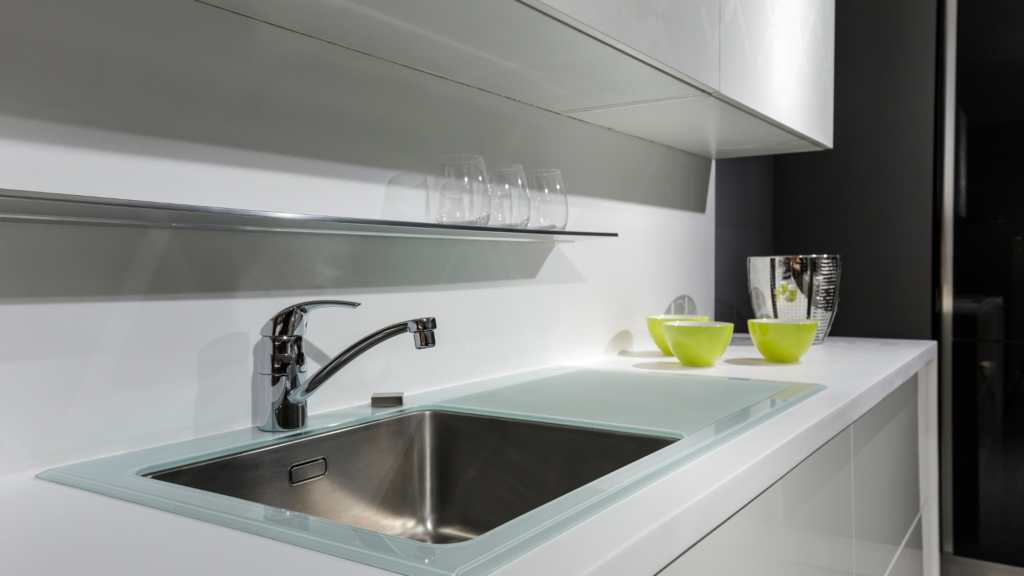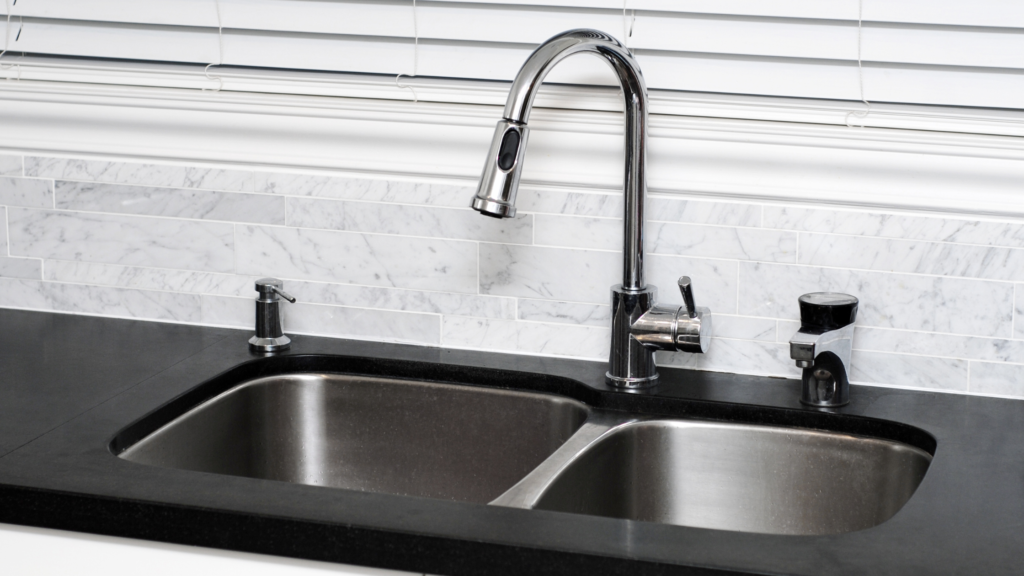Stainless steel sinks are a staple in many kitchens due to their durability and sleek appearance. However, they can be prone to scratches and marks, which can dull their shine and affect their overall look. Keeping your stainless steel bench with sink scratch-free is not only about maintaining its aesthetic appeal but also about preserving its longevity. Here’s a comprehensive guide on how to keep your stainless steel sink looking as good as new.

Regular Cleaning
The first and most straightforward step to preventing scratches is regular cleaning. Water spots and mineral deposits from hard water can cause your sink to look dull and can even lead to scratches if not cleaned properly. Use a mild detergent and a soft cloth or sponge to clean your sink daily. Rinse thoroughly with water and dry with a soft towel to prevent water spots and mineral deposits from forming.
Proper Utensils and Cleaning Materials
Avoid using steel wool, scouring pads, or harsh abrasive cleaners on your stainless steel sink. These materials can leave scratches and even rust marks. Instead, opt for non-abrasive tools like a soft cloth or a sponge. For tougher stains, consider using a soft brush and make sure to scrub in the direction of the stainless steel grain to minimise the risk of scratching.
Protective Measures
A simple way to protect your sink is by using a sink mat or grid. These sit at the bottom of the sink and act as a barrier between your dishes and the stainless steel, preventing scratches from pots, pans, and cutlery. Additionally, they can protect your sink from scuffs when washing larger items that might be harder to handle.
Mindful Usage
Be mindful of how you use your sink. Dropping heavy pots or pans into the sink can not only cause dents but also leave scratches. Gently place items in the sink and avoid sliding them across the surface. When washing cutlery or other sharp objects, be cautious not to drag them across the bottom of the sink.
Dealing with Existing Scratches
If your stainless steel sink already has scratches, there are ways to minimise their appearance. Products specifically designed for stainless steel can help in buffing out light scratches. For deeper scratches, it may be worth consulting a professional who can polish the sink and restore its finish.
Preventive Maintenance

Regular maintenance can go a long way in keeping your sink scratch-free. Once a week, give your sink a more thorough cleaning with a cleaner designed for stainless steel. This not only helps in keeping the sink clean but also applies a thin protective layer that can resist water and prevent stains.
Maintaining a scratch-free stainless steel sink is about regular care, using the right cleaning materials, and being mindful of how you use it. By following these tips, you can ensure that your sink remains a shining centrepiece in your kitchen for years to come. Remember, the key to preserving the beauty and functionality of your stainless steel sink lies in the daily habits and the preventive measures you take.
Can I use bleach to disinfect my stainless steel sink?
It’s best to avoid using bleach on stainless steel sinks. Bleach and chlorine-based cleaners can be corrosive and may damage the finish of your sink. Instead, use a mild detergent or a solution of vinegar and water for disinfecting.
How can I remove hard water stains from my stainless steel sink?
Hard water stains can be removed by wiping the sink with a solution of vinegar and water. Apply the solution, let it sit for a few minutes, and then rinse thoroughly with water. For stubborn stains, you might need to gently rub the area with a soft cloth soaked in the solution.
Is it necessary to oil my stainless steel sink to keep it looking new?
Oiling is not necessary, but applying a light layer of mineral oil to your stainless steel sink can help to repel water and prevent fingerprint marks. Apply a few drops of mineral oil to a soft cloth and wipe the surface of the sink lightly. This can enhance its shine and provide a temporary protective layer.
Are there any foods or substances I should avoid leaving in my stainless steel sink?
Acidic foods and substances like tomato sauce, lemon juice, and vinegar should not be left for long periods in your stainless steel sink as they can cause discoloration or dull the finish. It’s also advisable to avoid leaving salty foods or solutions in the sink to prevent corrosion.
Can I use a rubber mat to protect my stainless steel sink from scratches?
While rubber mats can protect the bottom of your sink from scratches, they should be used with caution. Water trapped underneath the mat can lead to discoloration and even rust. If you use a rubber mat, make sure to remove and dry it after each use.
